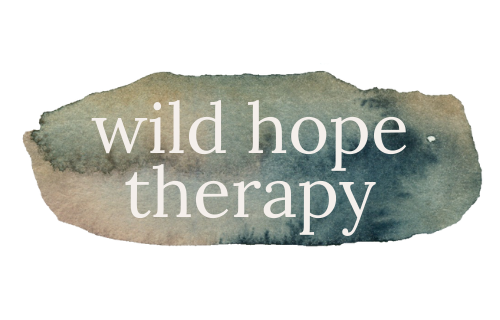building awareness around perinatal mental health
From conception through the first year after birth, known as the perinatal period, is a time filled with highs and lows for most growing families. For 1 in 7 new mothers, 1 in 3 BIPOC mothers and 1 in 10 new fathers this time may also be wrought with a perinatal mood or anxiety disorder (PMAD).
PMADs include postpartum depression, postpartum anxiety, postpartum OCD and postpartum psychosis. Perinatal therapists also may treat Bipolar II disorder brought on by pregnancy. These diagnoses are unique in that their symptoms begin or increase in severity (ranging from mild to severe) during pregnancy or in the year postpartum (after birth). It’s important to note that although challenging, PMADs are often TEMPORARY and TREATABLE.
“Becoming a parent can be the most joyful and most challenging experience of a person’s life. A new mom is wading through an incredible amount of transition while also trying to meet the needs of a new baby who didn’t come with instructions,” said Sara Parko, LSW, who specializes in perinatal mental health at Wild Hope Therapy in Columbus, Ohio.
Perinatal mental health treatment focuses on addressing the symptoms experienced through psychoeducation and evidence based, client centered treatment aimed at supporting a new or new again parent. “As a perinatal therapist I work with my clients to identify their challenges, whether it be anxious thoughts that impact their ability to bond with or care for their newborn, or a belief in their need to be a perfect parent; we then explore their strengths and resources to overcome the challenges and help each new parent meet their goals,” Sara said.
Another way that Sara works to increase support for new parents in the Columbus area is by planning and hosting Postpartum Support International’s annual fundraising and awareness building walk, Climb Out of the Darkness.
“Climb Out of the Darkness is such a great event that brings the community together and allows a new mom to see that there are plenty of other mamas with similar mental health journeys, 1 in 7 actually – which is a whole lot of women,” Sara said. “Most importantly, however, I hope they see that they don’t have to go forward on their journey alone. I think this is especially important after the amount of isolation that new parents have felt over the last two years.”
Sara added, “we just don’t talk about the hard stuff enough and that can be really dismaying for a new parent. My hope is that through increased awareness of perinatal mental health and perinatal mood and anxiety disorders, the conversations can begin, the stigma can begin to fade, and communities can increase support for new families through connection and therapy when necessary.”
This year’s Climb Out of the Darkness event will take place on June 25, 2022 at 10 a.m. at Fancyburg Park. To register to walk and/or donate please visit https://climbout2022.causevox.com/team/cotd-columbus-oh
